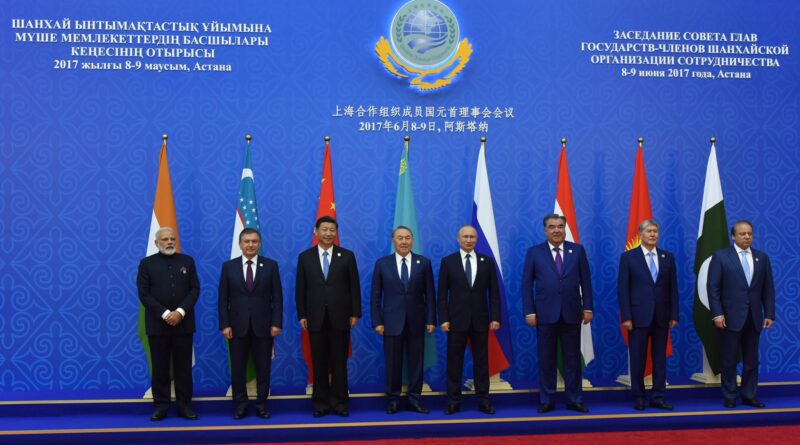Xi Jinping and Narendra Modi: Collaborators, Not Competitors
At a recent gathering in Tianjin, China, Chinese President Xi Jinping and Indian Prime Minister Narendra Modi embarked on critical discussions. Modi, visiting China for the first time in seven years, was attending the Shanghai Cooperation Organization Summit set for 2025. During their encounter, both leaders emphasized the importance of their nations acting as collaborators, not competitors, particularly notable as Russian President Vladimir Putin was set to join them.
The two leaders convened on the fringes of the Shanghai Cooperation Organization summit. Their discussion entailed many significant topics, including the need to catalyze connections between their respective citizenries. Direct flights and the process of approving tourist visas were among the subjects brought to light by India’s Press Information Bureau in an issued statement. The discussions were seen as a measure to recover from the hiatus caused by the confrontations between their military forces on the disputed Himalayan border back in 2020.
Pointing to an event of significance, both Jinping and Modi had a pivotal engagement at Kazan in 2024. This meeting was interpreted as the ‘rebirth of Sino-Indian affiliations’ by Xi during his Sunday remarks. Notably, this was Modi’s inaugural voyage to China in nearly a decade.
Reiterating the diplomatic stance, China’s Ministry of Foreign Affairs released a statement, indicating India’s readiness to collaboratively seek an understanding solution for the ongoing border dispute with China. The statement emphasized that the border stability is being maintained and efforts were being made for constructive conflict resolution.
Although no concrete dates were given for the resumption of flights, the leaders underlined the need to revive these services, given the critical nature of strategic autonomy pursued by both nations. Both leaders agreed that their mutual relations should not be influenced by the policies or opinions of third-party nations.
Echoing these sentiments, China affirmed the absence of third-party influence on bilateral negotiations. The leaders highlighted the necessity to expand their understanding on bilateral, regional, and global challenges such as terrorism and trade fairness in international platforms.
Crafting a global narrative independent of U.S. influence, Modi and Xi mutually articulated their aspiration of a multi-polar world alignment, despite having varied interests in several areas. This intention was clearly emphasized in the official communication by India’s government.
Further emphasizing the relationship between the two nations in the world’s political landscape, China’s Foreign Ministry labeled China and India as dynamic members of the ‘Global South.’ With a rich shared history as ancient Eastern civilizations, they continue to be the two most populous nations globally.
In a poetically phrased message, China characterized the optimal relation between the two nations as a ‘Dance of the Dragon and the Elephant.’ They envisioned this relationship as marked by mutual success, respecting the importance of cordial relations between immediate geographical neighbors.
Paralleling these discussions was the backdrop of punitive sanctions imposed on India by the Trump administration, a response to India’s continued patronage of Russian petroleum products. Given the imminent threat of U.S. sanctions on Russia due to the Ukrainian conflict, this action casts a significant shadow on the summit.
In light of growing domestic tension over the war costs, Putin intends to display a coalition front with India and China. With rampant inflation and economic strain largely attributed to Putin’s war expenditures and the ongoing aftershocks of Western sanctions, this unity becomes ever more crucial for Russia.
The Bank of Russia responded recently to these economic challenges by announcing a significant cut in its key interest rate — a two-point reduction bringing annual rates to 18%. This decision was motivated by faster-than-anticipated easing of inflation and early signs of economic stabilization.
Although the central bank revealed plans to maintain this stringent monetary policy for a reasonable period, it offered some respite. The predictions for 2025 suggest interest rates hovering between 18.8% and 19.6%, with a potential reduction to around 13% in the following year, aiming to achieve a target inflation rate of 4% by 2026.
Russian economists expressed their confidence in maintaining the current war efforts for another year. However, they warned that additional sanctions similar to those imposed on India by the Trump administration could pose detrimental impacts on Putin’s war initiative.
While the focus was heavily on the interactions between China, India, and Russia, the summit also saw participation from other significant players such as Pakistan and Iran. These nations’ involvement further stresses the global impact of these discussions and the strategic importance of the summit itself.
Turkish President Recep Tayyip Erdogan had pre-summit consultations with Xi Jinping, which again emphasized the wide range of global participants. In addition, North Korean leader Kim Jong-un’s anticipated attendance further hints at the political weight of this meeting.



